Preserve or playground? Costa Mesa mulls future of Fairview Park as hobbyists’ fate hangs in the balance
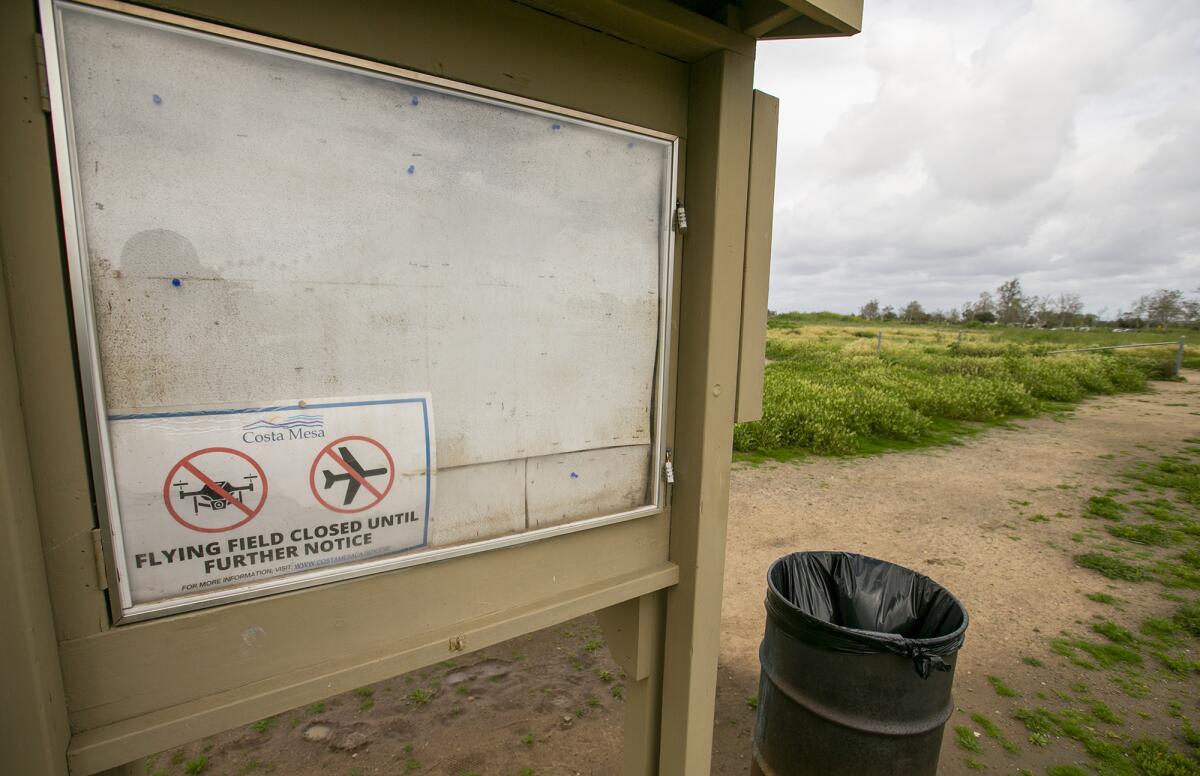
- Share via
For nearly 60 years, hobbyists have flown model gliders and motorized planes over the grasslands of Costa Mesa’s Fairview Park, a recreation that has attracted generations of retirees and would-be engineers collectively assembled as the Harbor Soaring Society.
The site where they launch remote-control aircraft on the west end of the property was shuttered during the pandemic, but when COVID-19 guidelines allowed for the reopening of parks no provisions were made for the resumption of flying.
Costa Mesa officials have been trying to determine whether and how such activity potentially impacts rare native plants and protected birds known to nest, winter and forage in Fairview’s vernal pools, the last such ecosystem of its kind in Orange County.
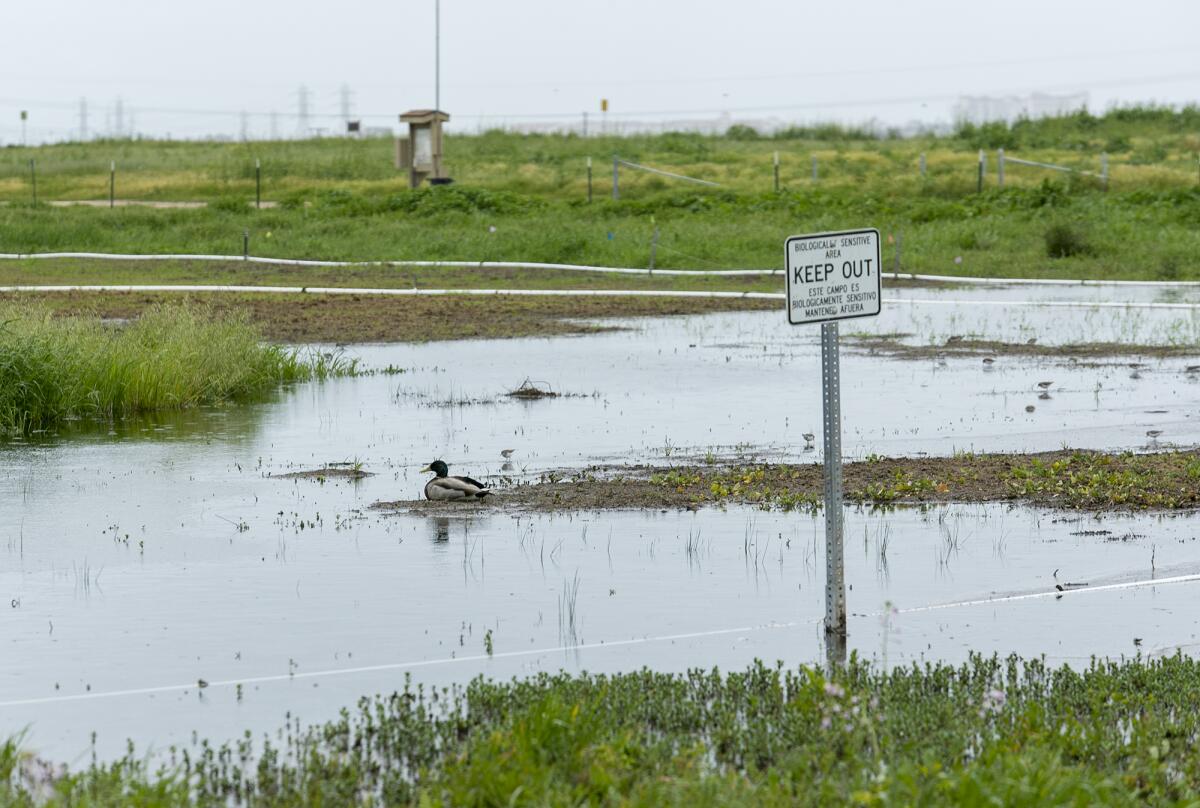
Dry throughout most of the year the pools, when replete with rainwater, produce endangered fairy shrimp, a valuable part of a food chain topped by raptors like the white-tailed kite, northern harrier and burrowing owl.
An updated master plan for the 200-acre park — which would direct preservation efforts in concert with multiple state and federal regulatory agencies and define activities as compatible or incompatible with those goals — has been on the drafting table for years.
HSS members have meanwhile pleaded their case before the Fairview Park Steering Committee, the Parks Commission and the City Council itself. Desiring to fly once more, the group has made concessions, proposing rules that would restrict flight times, require membership and regulate allowable crafts.
In September 2021, the City Council voted 5-2 to consider sanctioning the flying of non-mechanical gliders, while city staff looked for alternate locations in Fairview, or other city lands, that could accommodate the hobbyists.
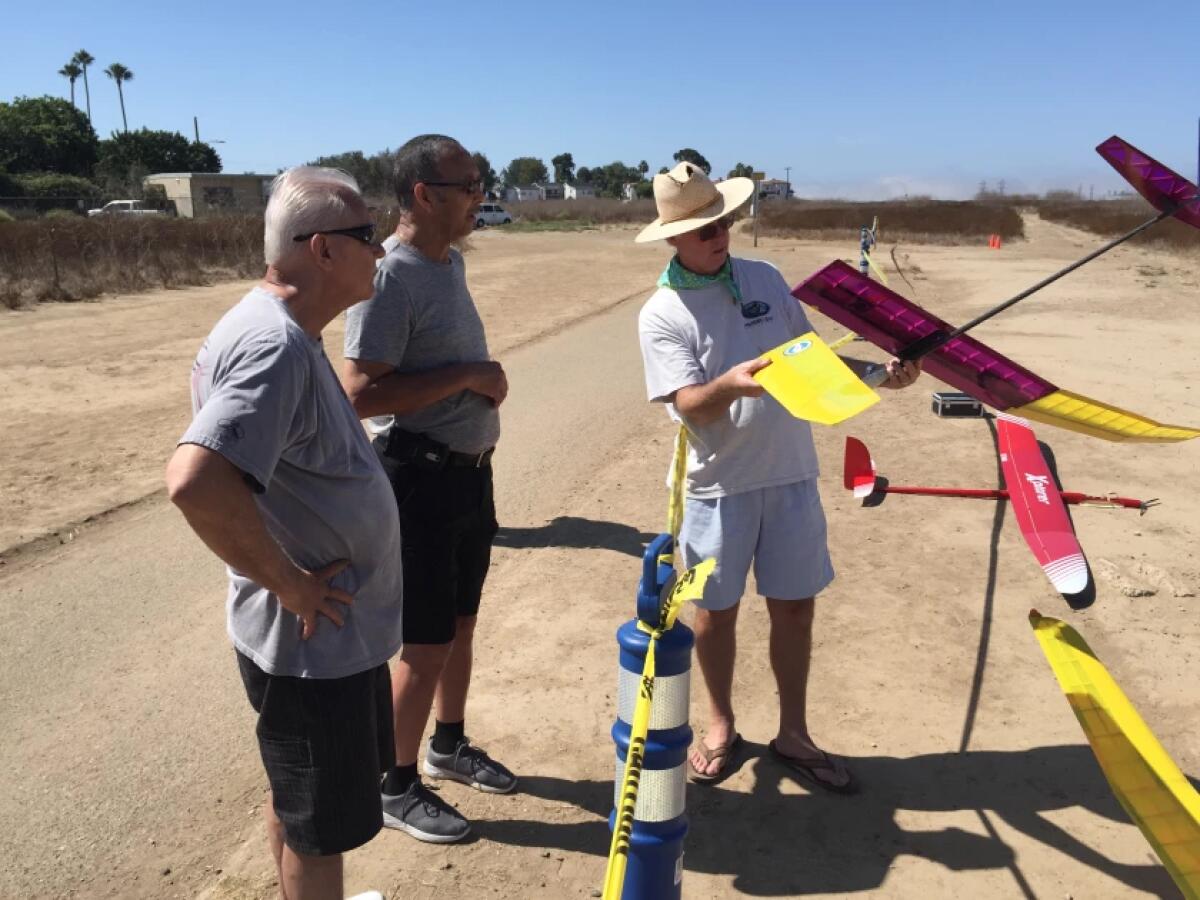
But it’s not looking good. This week, claiming not to have found a feasible workaround, staff sought direction from the Costa Mesa City Council on whether to permanently close Fairview’s model aircraft flying field as an activity incompatible with the park’s environmental resources.
“Wildlife agencies communicated model flying activities should not be performed in or over sensitive resources, specifically including vernal pools, coastal sage scrub, riparian habitat and native habitats that are considered sensitive on the mesa,” parks director Jason Minter told council members Tuesday.
Fairview Park Administrator Kelly Dalton described how the vernal pools, restored in the ’90s with grant funding, contain a unique geochemistry highly sensitive to disruption and degradation. He cited archival reports of previous disturbances caused by model aircraft.
“There were actually multiple incidents of crashes into, in some cases, other operators and near other aircraft operating in the vicinity, occasional fires resulting from those crashes in the brush [and] a relatively frequent observation of unpermitted retrieval in closed off or fenced off areas,” he said.
Some residents speaking during public comments at the meeting pointed out the current park master plan, written in 1998, identified silent gliders as a compatible and passive use of the park. Cassius Rutherford, a city parks commissioner, said there was no record of correspondence from state or federal wildlife agencies that called out gliders as a threat.
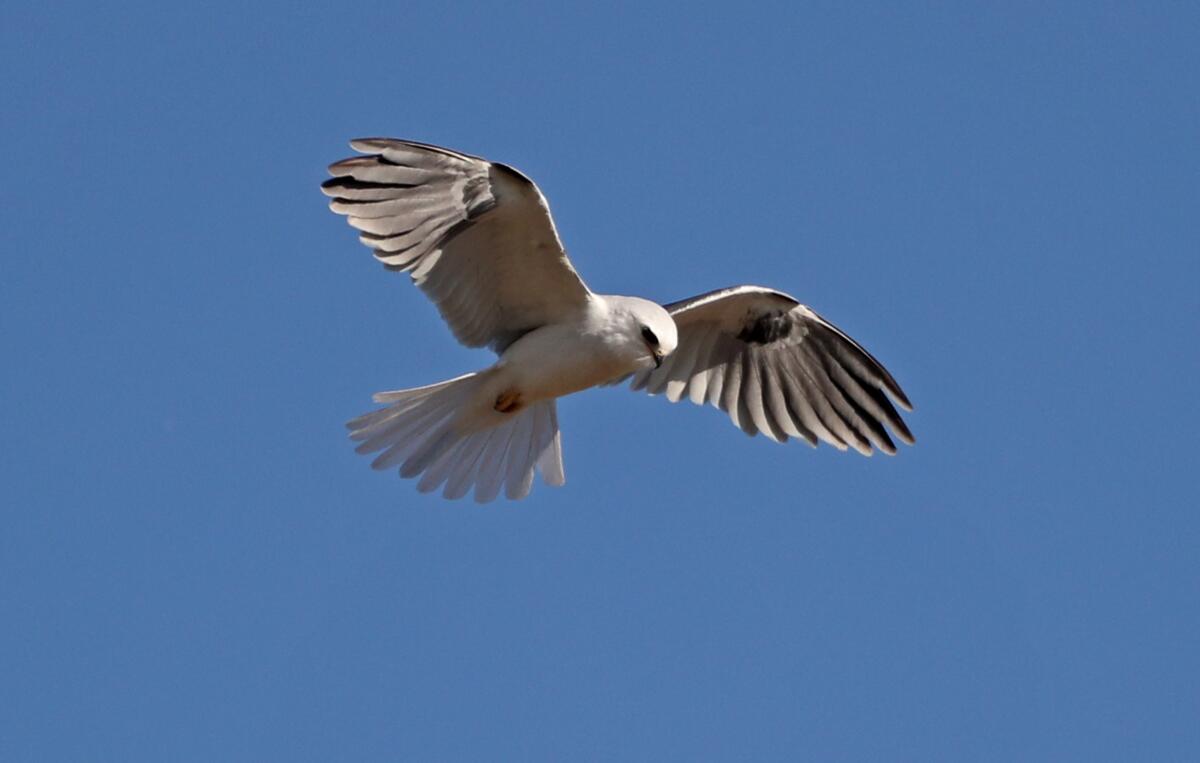
“I think there’s an opportunity for the city to find a path forward for compliance with silent gliders,” he said. “That would be a more prudent recommendation to explore, versus immediately shutting down the field.”
Model enthusiast Richard Morely maintained most HSS members are retired engineers and veterans who cause little harm to the land.
“We didn’t go up there to kill birds and step on shrimp, we went to talk, fly and spend our mornings,” he said. “We hardly have any other enjoyment in life anymore — we’ve paid our taxes, we’ve served our country, and [yet] we keep getting kicked in the teeth.”
Many commenters shared how the Harbor Soaring Society, particularly its volunteer efforts with local students and engineering classes, provided a valuable benefit to the community.
Others, however, took a different view, citing the more recent discovery of Fairview Park as an ecological resource as a mandate to protect the land.
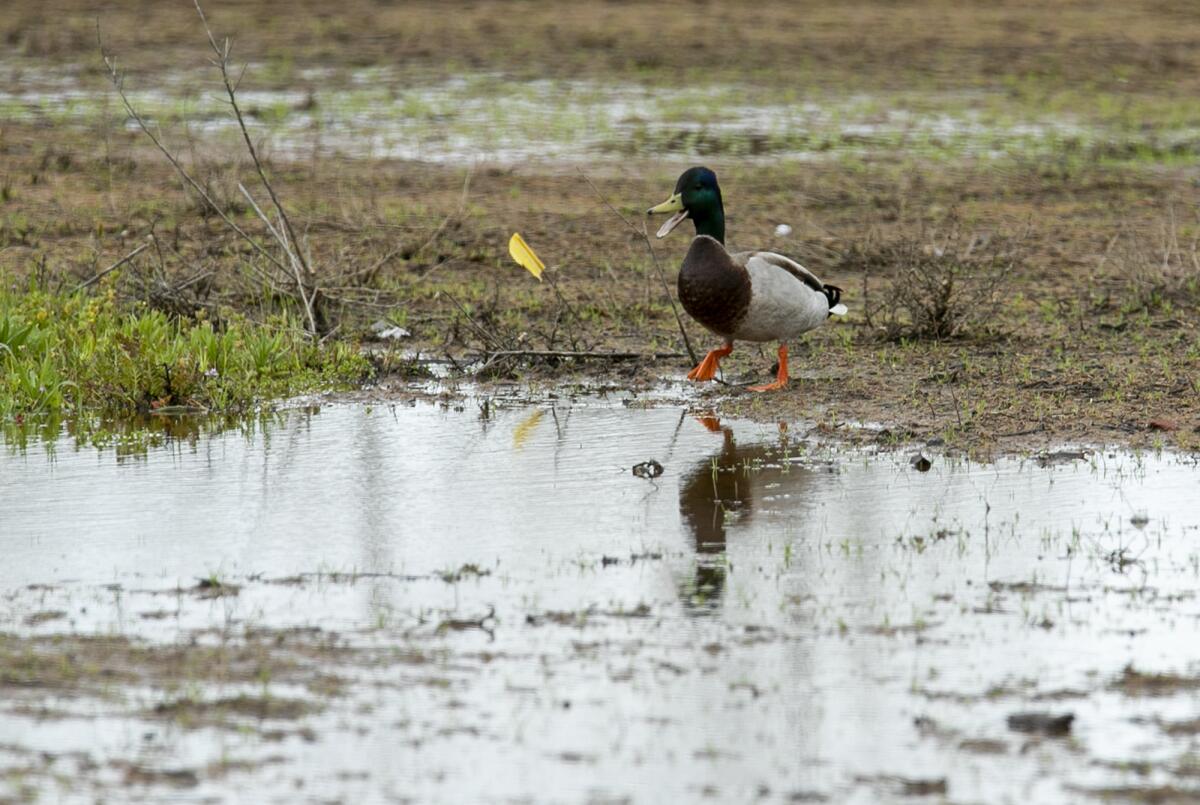
“The land at Fairview Park has changed,” said Steering Committee Chair Andy Campbell, pointing out the vernal pool area in the 1970s was a construction dumping ground. “The park has transitioned. The vernal pools were restored, and the city’s looking at restoration activities in the park.
“There’s grant money at stake,” he continued. “And if there’s fly field activity that puts the natural resources at stake, I don’t believe that grant money is going to be forthcoming.”
City Manager Lori Ann Farrell Harrison confirmed the city has received millions for mitigation efforts and received word in 2019 from the Department of Fish and Wildlife flying was an incompatible use at Fairview and should be scaled back.
Ultimately, the council voted 7-0 to continue the item to its April 18 meeting so members could more deeply explore documentation and correspondence.
“It feels irresponsible to make an impactful decision on that without following up on some of that homework,” said Councilwoman Arlis Reynolds, who made the motion.
All the latest on Orange County from Orange County.
Get our free TimesOC newsletter.
You may occasionally receive promotional content from the Daily Pilot.




